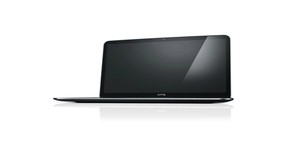Hard drive market set for double-digit slump
February 5, 2013 | 10:07
Companies: #ihs-isuppli #isuppli

The global market for traditional spinning-platter hard disk drives is set to take a massive slump this year, with industry analysts pointing to a double-digit drop in revenue.
According to a report from industry watcher IHS iSuppli, the hard drive market's revenue for the year will drop 11.8 per cent to a still pretty sizeable $32.7 billion, compared to $37.1 billion in the last financial year. Things won't get much better the year after, with iSuppli predicting a slight slip to $32 billion for 2014.
The reasons for such a gloomy outlook? The growing domination of solid-state storage devices and the increasing interest in so-called 'post-PC' devices like tablets and smartphones. 'The HDD industry will face myriad challenges in 2013,'' claimed Fang Zhang, analyst for storage systems at IHS, of the report. 'Shipments for desktop PCs will slip this year, while notebook sales are under pressure as consumers continue to favour smartphones and tablets. The declining price of SSDs also will allow them to take away some share from conventional HDDs.'
It's worth pointing out that iSuppli isn't predicting the death of the mechanical hard drive, however: the company's report points out that spinning platters are still king of the hill when it comes to cost per gigabyte, and it's increasingly common to see original equipment manufacturers (OEMs) and original design manufacturers (ODMs) exploit that fact by pairing a spinning disk with an SSD or using hybrid drives, even in ultra-slim devices like the current crop of Intel Ultrabooks.
While sales may be slipping at the cheaper end of the consumer market, where buyers are increasingly turning to tablets for their computing needs rather than upgrading their ageing laptops or desktops, iSuppli's report claims that enterprise use - in particular for cloud storage systems and 'big data' server farms - is only set to grow, being a market where solid-state disks would be cost prohibitive for the capacity required.
As a final prediction that should surprise no-one, iSuppli points to a potential end to the optical drive. As the world increasingly looks to the internet for distribution of software, video and audio, the optical drive - and, as HMV has discovered to its cost, the weekly journey to the shops to check out the new releases - is looking under increasing threat. As new ultra-compact form factors - like the aforementioned Ultrabook and Intel's Next Unit of Computing (NUC) desktop design - push the drive out as an external component, it's likely that fewer consumers will feel the pinch of its absence.
For consumers, the news of a slowing hard drive market is a mixed bag: iSuppli predicts prices could slip by as much as seven per cent over the coming year, meaning cheaper storage for all - but tighter revenues will lead to reduced research and development spending at the major manufacturers along with 'inventory adjustments' that may see production slowed to keep prices artificially high.
According to a report from industry watcher IHS iSuppli, the hard drive market's revenue for the year will drop 11.8 per cent to a still pretty sizeable $32.7 billion, compared to $37.1 billion in the last financial year. Things won't get much better the year after, with iSuppli predicting a slight slip to $32 billion for 2014.
The reasons for such a gloomy outlook? The growing domination of solid-state storage devices and the increasing interest in so-called 'post-PC' devices like tablets and smartphones. 'The HDD industry will face myriad challenges in 2013,'' claimed Fang Zhang, analyst for storage systems at IHS, of the report. 'Shipments for desktop PCs will slip this year, while notebook sales are under pressure as consumers continue to favour smartphones and tablets. The declining price of SSDs also will allow them to take away some share from conventional HDDs.'
It's worth pointing out that iSuppli isn't predicting the death of the mechanical hard drive, however: the company's report points out that spinning platters are still king of the hill when it comes to cost per gigabyte, and it's increasingly common to see original equipment manufacturers (OEMs) and original design manufacturers (ODMs) exploit that fact by pairing a spinning disk with an SSD or using hybrid drives, even in ultra-slim devices like the current crop of Intel Ultrabooks.
While sales may be slipping at the cheaper end of the consumer market, where buyers are increasingly turning to tablets for their computing needs rather than upgrading their ageing laptops or desktops, iSuppli's report claims that enterprise use - in particular for cloud storage systems and 'big data' server farms - is only set to grow, being a market where solid-state disks would be cost prohibitive for the capacity required.
As a final prediction that should surprise no-one, iSuppli points to a potential end to the optical drive. As the world increasingly looks to the internet for distribution of software, video and audio, the optical drive - and, as HMV has discovered to its cost, the weekly journey to the shops to check out the new releases - is looking under increasing threat. As new ultra-compact form factors - like the aforementioned Ultrabook and Intel's Next Unit of Computing (NUC) desktop design - push the drive out as an external component, it's likely that fewer consumers will feel the pinch of its absence.
For consumers, the news of a slowing hard drive market is a mixed bag: iSuppli predicts prices could slip by as much as seven per cent over the coming year, meaning cheaper storage for all - but tighter revenues will lead to reduced research and development spending at the major manufacturers along with 'inventory adjustments' that may see production slowed to keep prices artificially high.

MSI MPG Velox 100R Chassis Review
October 14 2021 | 15:04








Want to comment? Please log in.